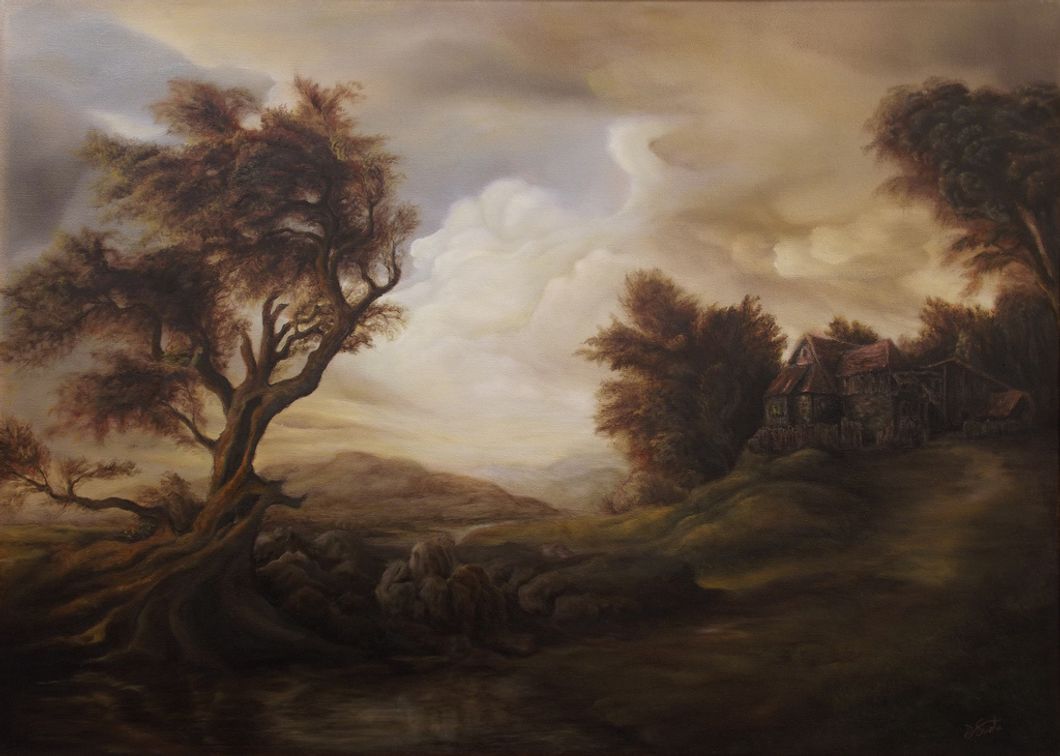When I was a little kid, I was fascinated by the supernatural. This lead me, later on, to read Bram Stoker's "Dracula" (1897), Mary Shelley's "Frankenstein" (1816), and Robert Louis Stevenson's "Strange Case of Dr Jekyll and Mr Hyde" (1886). These works of 19th-century fiction (in order to (over)simplify, let's call it all Victorian, even though Queen Victoria's reign didn't begin until after "Frankenstein" was published) are loads of fun and go a long way towards characterizing that century as a golden age of the supernatural in British fiction. This period of English-language lit was also characterized by complex plots and larger-than-life characters (think of Dickens) and also had its fair share of sentimentalism (Harriet Beecher Stowe's "Uncle Tom's Cabin" (1852), for example, has a strong tendency to tug at its reader's heartstrings) that was often employed in emphasis on romantic relationships. (I just read "María" by Jorge Isaacs, one of a great many Latin American novels of the period which funnel ideas about national formation through their depiction of romance, and, boy, is it sentimental.) "Wuthering Heights" is certainly a romance novel, and it also is rather supernatural. At the end of it all, it goes beyond the constraints of both genres.
(A clarification before proceeding: my introduction to the novel came in two parts. First off, since I was little I've had a book of excerpts from works of Gothic fiction, and a section of "Wuthering Heights" is included in it. Secondly, I ran into this awesome (and awesomely bizarre) 1978 pop song by Kate Bush based on the novel. So, a few months ago I read the book as part of a regimen I'd set up of enriching my intake of literature.)
The novel has a structure common to many melodramas: we get the story of two families and their soap opera-ish interactions over two generations. As the antics of the second generation reach their conclusion, we learn the story of the first generation through a story told to the narrator. The first generation's story includes the eerie relationship between Heathcliff and Catherine ("Cathy"); Catherine notably dies, and the entire work is haunted by the suggestion that the passionate interaction between the two lives on in an unholy way beyond the grave.
So here we have a simple structure for a novel, with a frightening element of the supernatural superimposed onto it. (It wasn't for nothing that Dante Gabriel Rossetti said of "Wuthering Heights" that "The action is laid in hell,--only it seems places and people have English names there".) Add to that memorable characters worthy of Dickens, accurate use of local dialect (Harriet Beecher Stowe is also notable for her skills at that), and beautiful prose. (At one point, Cathy says of her dreams: "they've gone through and through me, like wine through water". This seems to me to be a perfect encapsulation of the entire essence of the novel.)
The novel's nods to melodrama make it a clear child of Victorian England; its dwelling on loneliness and its magnificent evocations make it a worthy testament to romanticism; its documentation of life in the Yorkshire moors makes it a work of realism as well; and its nod (but only a suggestive nod) to the presence of the supernatural makes it clearly part of the tradition captured in the popular imagination by works like "Dracula". Its position (and lack thereof) in the traditional literary canon, its female authorship, and its depiction of male-female relationships make it ideal for the interests of today's scholars. It is above all a startling, unforgettable, and aesthetically cohesive depiction of human interactions in all of their brutal complexity, and, in a(n) (over)simplified nutshell, great literature strives for nothing else.
Like Oscar Wilde's "The Picture Of Dorian Gray" (which I've yet to read in full), "Wuthering Heights" shows that the Victorian period, for all its limiting conventions, also brilliantly succeeded in artistic self-subversion. For that, today's writers are rightfully very grateful.









































